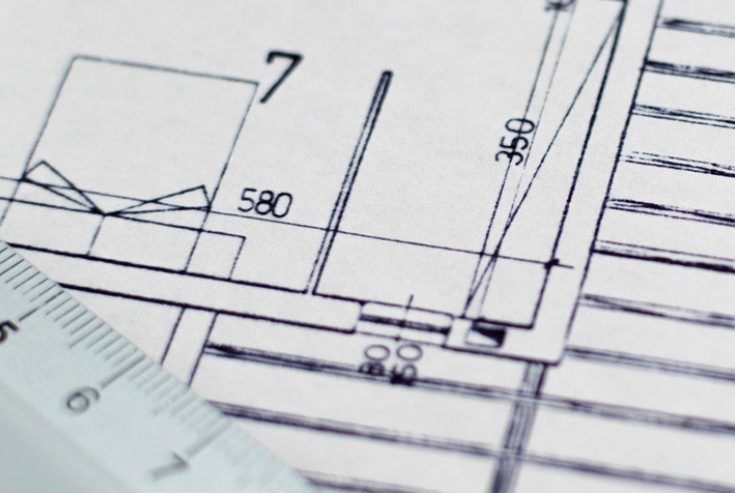[
{
"id": "423",
"title": "Expertise",
"parent": -1,
"url": "https://www.girlings.com/expertise",
"children": [
{
"id": "429",
"title": "Business Law",
"parent": "423",
"url": "https://www.girlings.com/business-law",
"children": [
{
"id": "430",
"title": "Commercial Property",
"parent": "429",
"url": "https://www.girlings.com/business-law/commercial-property",
"children": [
{
"id": "431",
"title": "Buying & Selling",
"parent": "430",
"url": "https://www.girlings.com/business-law/commercial-property/buying-selling"
}
,
{
"id": "3349",
"title": "Commercial Leases",
"parent": "430",
"url": "https://www.girlings.com/business-law/commercial-property/leases"
}
,
{
"id": "3350",
"title": "Secured Lending",
"parent": "430",
"url": "https://www.girlings.com/business-law/commercial-property/secured-lending"
}
,
{
"id": "3351",
"title": "Agricultural Land & Buildings",
"parent": "430",
"url": "https://www.girlings.com/business-law/commercial-property/agricultural-land"
}
]
}
,
{
"id": "3352",
"title": "Corporate, Banking & Finance",
"parent": "429",
"url": "https://www.girlings.com/business-law/corporate-law",
"children": [
{
"id": "3353",
"title": "Banking & Finance",
"parent": "3352",
"url": "https://www.girlings.com/business-law/corporate-law/banking-finance"
}
,
{
"id": "3354",
"title": "Mergers, Acquisitions & Disposals",
"parent": "3352",
"url": "https://www.girlings.com/business-law/corporate-law/mergers-acquisitions-disposals"
}
,
{
"id": "3355",
"title": "Restructuring & Insolvency",
"parent": "3352",
"url": "https://www.girlings.com/business-law/corporate-law/restructuring-insolvency"
}
,
{
"id": "3356",
"title": "Governance",
"parent": "3352",
"url": "https://www.girlings.com/business-law/corporate-law/governance"
}
]
}
,
{
"id": "3357",
"title": "Commercial Law",
"parent": "429",
"url": "https://www.girlings.com/business-law/commercial-law",
"children": [
{
"id": "3358",
"title": "Terms & Conditions",
"parent": "3357",
"url": "https://www.girlings.com/business-law/commercial-law/terms-conditions"
}
,
{
"id": "3359",
"title": "Commercial Agreements",
"parent": "3357",
"url": "https://www.girlings.com/business-law/commercial-law/agreements"
}
,
{
"id": "3360",
"title": "Intellectual Property, Social Media & Marketing",
"parent": "3357",
"url": "https://www.girlings.com/business-law/commercial-law/ip-social-media-marketing"
}
]
}
,
{
"id": "3361",
"title": "Employment Law for Businesses",
"parent": "429",
"url": "https://www.girlings.com/business-law/employment-law",
"children": [
{
"id": "3362",
"title": "HR Advice & Training",
"parent": "3361",
"url": "https://www.girlings.com/business-law/employment-law/hr-advice-training"
}
,
{
"id": "3363",
"title": "Employment Litigation & Prevention",
"parent": "3361",
"url": "https://www.girlings.com/business-law/employment-law/litigation-prevention"
}
,
{
"id": "3364",
"title": "Business Protection & Enforcing Restrictive Covenants",
"parent": "3361",
"url": "https://www.girlings.com/business-law/employment-law/protection-restrictive-covenants"
}
,
{
"id": "3365",
"title": "Redundancies & Restructuring",
"parent": "3361",
"url": "https://www.girlings.com/business-law/employment-law/redundancies-restructuring"
}
,
{
"id": "3366",
"title": "Drafting Contracts, Bonus Plans & Policies",
"parent": "3361",
"url": "https://www.girlings.com/business-law/employment-law/contracts-bonuses-policies"
}
,
{
"id": "3367",
"title": "Employee Terminations & Severance Negotiations",
"parent": "3361",
"url": "https://www.girlings.com/business-law/employment-law/terminations-severance"
}
,
{
"id": "3368",
"title": "Support with Investigations",
"parent": "3361",
"url": "https://www.girlings.com/business-law/employment-law/investigations"
}
,
{
"id": "3369",
"title": "Transactional Support Including TUPE",
"parent": "3361",
"url": "https://www.girlings.com/business-law/employment-law/transactional-support"
}
,
{
"id": "3370",
"title": "Data Protection",
"parent": "3361",
"url": "https://www.girlings.com/business-law/employment-law/data-protection"
}
,
{
"id": "3371",
"title": "Business Immigration",
"parent": "3361",
"url": "https://www.girlings.com/business-law/employment-law/immigration"
}
]
}
,
{
"id": "3372",
"title": "Debt Recovery",
"parent": "429",
"url": "https://www.girlings.com/business-law/debt-recovery",
"children": [
]
}
,
{
"id": "3373",
"title": "Dispute Resolution for Businesses",
"parent": "429",
"url": "https://www.girlings.com/business-law/dispute-resolution",
"children": [
{
"id": "3374",
"title": "Contract",
"parent": "3373",
"url": "https://www.girlings.com/business-law/dispute-resolution/contracts"
}
,
{
"id": "3375",
"title": "Construction",
"parent": "3373",
"url": "https://www.girlings.com/business-law/dispute-resolution/construction"
}
,
{
"id": "3377",
"title": "Commercial Landlord & Tenant",
"parent": "3373",
"url": "https://www.girlings.com/business-law/dispute-resolution/landlord-tenant"
}
,
{
"id": "3378",
"title": "Company Shareholder/Partnership",
"parent": "3373",
"url": "https://www.girlings.com/business-law/dispute-resolution/company-shareholder-partnership"
}
,
{
"id": "3379",
"title": "Insolvency/Winding Up",
"parent": "3373",
"url": "https://www.girlings.com/business-law/dispute-resolution/insolvency-winding-up"
}
,
{
"id": "3380",
"title": "Professional Negligence",
"parent": "3373",
"url": "https://www.girlings.com/business-law/dispute-resolution/professional-negligence"
}
]
}
]
}
,
{
"id": "3381",
"title": "Personal Law",
"parent": "423",
"url": "https://www.girlings.com/personal-law",
"children": [
{
"id": "3382",
"title": "Residential Property",
"parent": "3381",
"url": "https://www.girlings.com/personal-law/residential-property",
"children": [
{
"id": "3383",
"title": "Buying & Selling Property",
"parent": "3382",
"url": "https://www.girlings.com/personal-law/residential-property/buying-selling"
}
,
{
"id": "3384",
"title": "Complex & High Value Transactions",
"parent": "3382",
"url": "https://www.girlings.com/personal-law/residential-property/complex-high-value"
}
,
{
"id": "3385",
"title": "Mortgages & Equity Release",
"parent": "3382",
"url": "https://www.girlings.com/personal-law/residential-property/mortgages-equity-release"
}
,
{
"id": "3386",
"title": "Investment Properties",
"parent": "3382",
"url": "https://www.girlings.com/personal-law/residential-property/investment-properties"
}
,
{
"id": "3387",
"title": "First Time Buyers",
"parent": "3382",
"url": "https://www.girlings.com/personal-law/residential-property/first-time-buyers"
}
,
{
"id": "3388",
"title": "Lease Extensions",
"parent": "3382",
"url": "https://www.girlings.com/personal-law/residential-property/lease-extensions"
}
]
}
,
{
"id": "3389",
"title": "Family Law",
"parent": "3381",
"url": "https://www.girlings.com/personal-law/family-law",
"children": [
{
"id": "3390",
"title": "Divorce & Dissolution of Civil Partnerships",
"parent": "3389",
"url": "https://www.girlings.com/personal-law/family-law/divorce-civil-partnerships"
}
,
{
"id": "3391",
"title": "Unmarried Couples",
"parent": "3389",
"url": "https://www.girlings.com/personal-law/family-law/unmarried-couples"
}
,
{
"id": "3392",
"title": "Children",
"parent": "3389",
"url": "https://www.girlings.com/personal-law/family-law/children"
}
,
{
"id": "3393",
"title": "Finances",
"parent": "3389",
"url": "https://www.girlings.com/personal-law/family-law/finances"
}
,
{
"id": "3394",
"title": "Mediation, Collaborative Law & Arbitration",
"parent": "3389",
"url": "https://www.girlings.com/personal-law/family-law/mediation-arbitration-collaborative-law"
}
,
{
"id": "3395",
"title": "Domestic Abuse",
"parent": "3389",
"url": "https://www.girlings.com/personal-law/family-law/domestic-abuse"
}
,
{
"id": "3396",
"title": "Pre & Post Nuptial Agreements",
"parent": "3389",
"url": "https://www.girlings.com/personal-law/family-law/pre-post-nuptial-agreements"
}
]
}
,
{
"id": "3397",
"title": "Wills, Tax & Estate Administration",
"parent": "3381",
"url": "https://www.girlings.com/personal-law/wills-tax-estates",
"children": [
{
"id": "3398",
"title": "Wills & Succession Planning",
"parent": "3397",
"url": "https://www.girlings.com/personal-law/wills-tax-estates/wills-succession-planning"
}
,
{
"id": "3399",
"title": "Estate Administration",
"parent": "3397",
"url": "https://www.girlings.com/personal-law/wills-tax-estates/estate-administration"
}
,
{
"id": "3400",
"title": "Trusts",
"parent": "3397",
"url": "https://www.girlings.com/personal-law/wills-tax-estates/trusts"
}
,
{
"id": "3401",
"title": "Lasting & Enduring Powers of Attorney",
"parent": "3397",
"url": "https://www.girlings.com/personal-law/wills-tax-estates/powers-attorney"
}
,
{
"id": "3402",
"title": "Tax",
"parent": "3397",
"url": "https://www.girlings.com/personal-law/wills-tax-estates/tax"
}
,
{
"id": "3404",
"title": "Contested Wills & Estates",
"parent": "3397",
"url": "https://www.girlings.com/personal-law/dispute-resolution/contested-wills-estates"
}
]
}
,
{
"id": "3405",
"title": "Court of Protection",
"parent": "3381",
"url": "https://www.girlings.com/personal-law/court-protection",
"children": [
{
"id": "3406",
"title": "Deputyship",
"parent": "3405",
"url": "https://www.girlings.com/personal-law/court-protection/deputyship"
}
,
{
"id": "3407",
"title": "Care for Elderly & Vulnerable People",
"parent": "3405",
"url": "https://www.girlings.com/personal-law/court-protection/elderly-vulnerable-care"
}
]
}
,
{
"id": "3408",
"title": "Employment Law for Individuals",
"parent": "3381",
"url": "https://www.girlings.com/personal-law/employment-law",
"children": [
{
"id": "3409",
"title": "Restrictive Covenant & Team Move Disputes",
"parent": "3408",
"url": "https://www.girlings.com/personal-law/employment-law/restrictive-covenants-team-move"
}
,
{
"id": "3410",
"title": "Settlement Agreements & Negotiating Exits",
"parent": "3408",
"url": "https://www.girlings.com/personal-law/employment-law/settlement-agreements-exits"
}
,
{
"id": "3411",
"title": "Redundancy & Unfair Dismissal",
"parent": "3408",
"url": "https://www.girlings.com/personal-law/employment-law/redundancy-unfair-dismissal"
}
,
{
"id": "3412",
"title": "Shareholder & Directorship Disputes",
"parent": "3408",
"url": "https://www.girlings.com/personal-law/employment-law/shareholder-director-disputes"
}
,
{
"id": "3413",
"title": "Grievances & Disciplinaries",
"parent": "3408",
"url": "https://www.girlings.com/personal-law/employment-law/grievances-disciplinaries"
}
,
{
"id": "3414",
"title": "Contracts, Bonuses & Incentive Plans",
"parent": "3408",
"url": "https://www.girlings.com/personal-law/employment-law/contracts-bonuses-incentives"
}
,
{
"id": "3415",
"title": "Discrimination & Whistleblowing",
"parent": "3408",
"url": "https://www.girlings.com/personal-law/employment-law/discrimination-whistleblowing"
}
]
}
,
{
"id": "3416",
"title": "Dispute Resolution for Individuals",
"parent": "3381",
"url": "https://www.girlings.com/personal-law/dispute-resolution",
"children": [
{
"id": "3417",
"title": "Contested Wills & Estates",
"parent": "3416",
"url": "https://www.girlings.com/personal-law/dispute-resolution/contested-wills-estates"
}
,
{
"id": "3420",
"title": "Landlord & Tenant",
"parent": "3416",
"url": "https://www.girlings.com/personal-law/dispute-resolution/landlord-tenant-2"
}
]
}
,
{
"id": "47638",
"title": "Girlings Personal Injury Claims",
"parent": "3381",
"url": "https://www.girlings.com/personal-law/gpic",
"children": [
]
}
,
{
"id": "47640",
"title": "Notary",
"parent": "3381",
"url": "https://www.girlings.com/personal-law/notary",
"children": [
]
}
]
}
,
{
"id": "3424",
"title": "Charity & Not-for-Profit",
"parent": "423",
"url": "https://www.girlings.com/charity-not-for-profit",
"children": [
{
"id": "3425",
"title": "Governance & Commercial Advice",
"parent": "3424",
"url": "https://www.girlings.com/charity-not-for-profit/governance-commercial-advice",
"children": [
]
}
,
{
"id": "3426",
"title": "Property for Charities",
"parent": "3424",
"url": "https://www.girlings.com/charity-not-for-profit/property-charities",
"children": [
]
}
,
{
"id": "3427",
"title": "Solving Disputes & Regulatory Inquiries",
"parent": "3424",
"url": "https://www.girlings.com/charity-not-for-profit/disputes-regulatory-inquiries",
"children": [
]
}
,
{
"id": "3428",
"title": "Employees, Volunteers & Trustees",
"parent": "3424",
"url": "https://www.girlings.com/charity-not-for-profit/employees-volunteers-trustees",
"children": [
]
}
,
{
"id": "3429",
"title": "Legacies",
"parent": "3424",
"url": "https://www.girlings.com/charity-not-for-profit/legacies",
"children": [
]
}
]
}
,
{
"id": "3403",
"title": "Independent Financial Planning",
"parent": "423",
"url": "https://www.girlings.com/independent-financial-planning",
"children": [
]
}
,
{
"id": "47639",
"title": "Girlings Europe",
"parent": "423",
"url": "https://www.girlings.com/girlings-europe",
"children": [
]
}
]
}
,
{
"id": "3435",
"title": "About",
"parent": -1,
"url": "https://www.girlings.com/about",
"children": [
]
}
,
{
"id": "3434",
"title": "People",
"parent": -1,
"url": "https://www.girlings.com/people",
"children": [
]
}
,
{
"id": "3436",
"title": "Latest",
"parent": -1,
"url": "https://www.girlings.com/latest",
"children": [
{
"id": "97381",
"title": "News",
"parent": "3436",
"url": "https://www.girlings.com/latest",
"children": [
]
}
,
{
"id": "97379",
"title": "Videos",
"parent": "3436",
"url": "/latest/videos",
"children": [
]
}
]
}
,
{
"id": "3437",
"title": "Careers",
"parent": -1,
"url": "https://www.girlings.com/careers",
"children": [
]
}
,
{
"id": "3438",
"title": "Contact",
"parent": -1,
"url": "https://www.girlings.com/contact",
"children": [
]
}
]



















